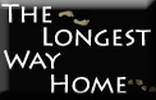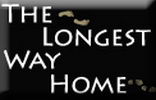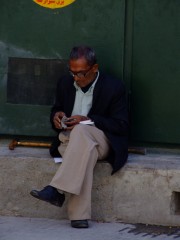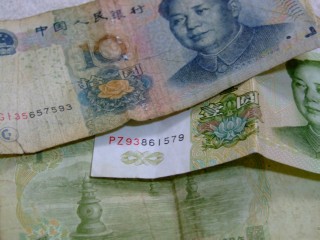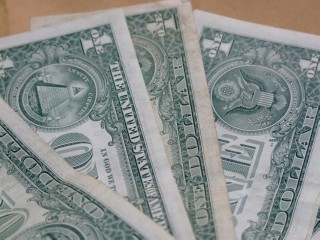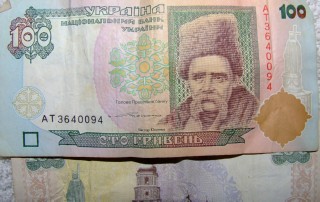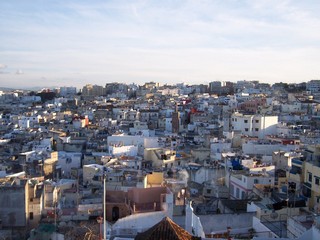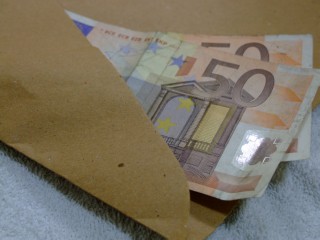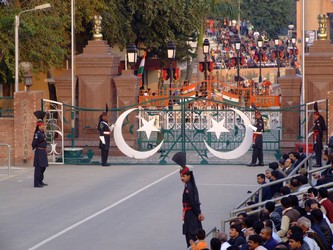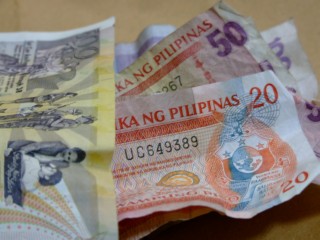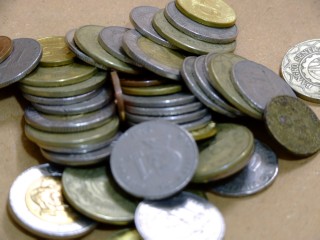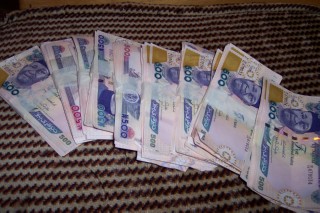The art of changing money when you travel
Money Changers: You need their money, they want yours
A lot of travelers seem to make a big deal out of changing money. I've never had a problem, in fact it's one of the things I enjoy about arriving into a new country.
The following few topics are how I deal with changing money overseas.
Get money before you need it
1) It's that simple really. Get as much currency you need before you go to the country you'll need it in.
2) For the overland sections of my journey's I usually do this in either a capital city. Or, the nearest border town. But, not at the actual border.
3) For flying I use the same method. Only, I consider the airport the border and try to never change anything there. Also be aware of how much you are allow to take in.
4) I also only change enough for either the time I know that I will in the country for, or enough to get me through two days so I can get to a bank.
5) Another point is: learn how to pronounce the new currency. And learn if there are any nicknames for it too!
Tip: On each page of my visited countries to the left are up to date official currency rates!
What if you can't get any money before you travel?
This has happened to me on a couple of occasions. I found it hard to buy anything but Yuan or dollars in the north east of China.
In this case I went into the Philippines without a peso. I arrived at 4am. And sure enough there were money changers wide awake making profit from sleepy tourists.
Me, I went to the ATM and withdrew 10,000 pesos. Enough to get me to my hotel, avoid small ATM charges, and get out the next day to find a money changer that would take my Yuan. It took a while. No bank wanted to know. But I found a back street changer who was happy to take the Yuan.
Using an ATM or Credit Card will usually get you a fairer rate than bringing in another currency. Though you should check with your bank and card rates before leaving.
Tips for changing money at a border
Even if you don't really need to change money here. I always found the money changers waiting there are very good at convincing you otherwise!
Calls of "Nothing except 100 notes after border" or "This the old money, new notes just printed last month." would make anyone think twice.
Some money changers are even telling half truths. Anything lower than a 500 Indian Rupee note is rarely excepted in Nepal.
I always have the money I am changing counted, and within reach. But never next to any other currency. In other words if I am changing Rial into Rupee I will not show any dollar until the deal is done.
I will also use this time to remove all coin that I no longer need. Borders are a great place to get rid of all that heavy change. Whereas most inland money exchanges (FOREX) will not deal in coin.
How to deal with a hoard of money changers
If I really have to change money at a border then I will already have worked out how much my currency is worth - in total.
I could care less what 1 Rupee is worth compared to the Yuan. I have 5,000 Rupee's and I've already worked out what I should be getting in Yuan for the whole lot.
There will be a rush of people coming up to you with hefty wads of notes in one hand, and waving a small dirty calculator in the other.
Keep walking.
Once the throng have latched onto the rest of the border crosser's. I Look around and there is nearly always someone still watching me. I usually just have to raise an eyebrow - and they come over to me. Our conversation usually goes like this for say buying Turkish Lira.
Dealing with a money changer at a border
"How much to buy Lira with Euro" I say clearly in bad grammar. This opens things up with basic terms. This person will never be my best friend, it's business plain and simple.
"2.7 Lira" followed by a host of mumbling. I really don't care. Their job is to now start babbling numbers at you. This can be confusing, and often times designed to take you off your game.
I don't let them finish. I walk with them near a group of others. "I have 200 Euro, I want a better deal okay?"
The first price I get back is with no deal. But as I already worked the conversion, I know this already. "No good. I am not changing small money here. Not like 50. I want to change 200. Now, give me a better deal or I go to your friend over there."
This is where the fun really starts. The person will either relent to a better price, or try their luck and offer the same again. If so, I shake my head and say no thanks.
Nearly immediately the money changer will come back to you and offer something better. If not, keep walking and go to the next person. Who, more likely or not is already hedging their bets on giving me a slightly better deal.
Smile all the time at money changers
One of the most important things I do during all this is keep a happy attitude. Getting angry over being cheated is useless. You need their money, not the other way round. Stay happy, and you'll get smiles back in return. A deal is easier that way.
When to sell your leftover cash
Same principle as buying, but in reverse. Not at the border, unless it's small coin. But always take some to the airport if you are leaving that way, as quite often there are surcharges there. And, remember that even in your home country they may not except money from some countries. So check before you leave!
What type of FOREX should I use?
In nearly every town or city there are money exchange stores. Some are nationalized or private banks, others official agents, others semi official, others still are back alley black market stalls. And, of course there's the hoard of people found on the street around these establishments. Which one to use though?
If one is not comfortable in dealing with street sellers, or those strange dark little buildings with dollar rates painted on the side: then I would just go to a bank. The rates will be worse, but you will feel more secure.
For me I enjoy the banter of the run down back alley money changers. The rates are usually better than the banks and better than the street dealers.
Examples of worldwide money
changers
In West Africa the whole process is quite a sit down affair. Pleasantries are exchanged, and a bit of haggling takes place.
In Iran it's often done in a Bazaar. I changed money in a gold Market with extreme ease and got a host of great stories from the owners.
In Asia its more of rush in and talk to a person behind an iron grill or glass window.
Either way I choose a money changer I am comfortable with. And, I make sure I know the rules of the country. In many places street changing is illegal. And often times it may be a set up to offer a good deal to a tourist, and then getting a tap on the shoulder from a policeman who was waiting in the wings. Now that's an extra exchange rate I don't want to pay!
Don't haggle over a few cents
I've met some travelers who will haggle over the .0002 of an exchange rate. I get the point, but really one does have to weigh up the odds. On one occasion this girl I was traveling with wouldn't let up until the money changer let her have an extra .0002.
It took an extra 10 minutes and she saved USD 0.05 cents. It was in the mid day heat and we missed a transport due to it. We had to wait around and buy extra water and food that cost a lot more.
Saving money or rather not being conned is important. But I never get down to the long drawn out bargaining over .05 cents. I'd prefer that the money changer keeps the extra bit, and helps me catch the bus out from the border.
Things to watch out for in changing money overseas
1) Stamping of money: Some money changers will try to stamp notes with their business name or seal. I ask them not to, or I don't except it. The reason for this is that many other places may not take marked notes.
2) Fake money: I've never had this problem from money changers. But there is fake money out there. I try to do a quick internet search just to see what the money looks like before buying any.
3) I take my time inside a money changers office. I've seen people rush and open up their wallets for all to see. And start loosening their belts and pull out a not so hidden money belt. I have everything to hand before going in.
4) I put my money away safely before leaving the money changers. I don't leave holding a wad of cash. And if changing a lot. I always separate it out into different pockets and or bags.
5) Before leaving I always ask for a business card. Usually followed by asking if they sell another currency. It means I leave on good terms, and am happy to recommend them to others. This good will can often help out with directions or other bits of useful information that can help me on my travels.
Traveling? Looking for ideas on what to pack? Have a look at my travel gadget list or my travel packing list.
Please note the above is based on my own personal experience. I don't endorse nor recommend any products nor procedures. If you find this information helpful, then that's a good thing.
